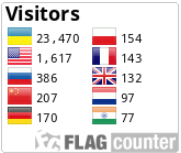INTEGRATING ‘UNDERLINE’ TECHNOLOGY IN TEACHING ESP REMOTELY
DOI:
https://doi.org/10.28925/2518-7635.2023.812Keywords:
digital tool, ESP, reading online, remote teaching, UnderlineAbstract
The article is devoted to the problem of integrating digital tool Underline into the remote classes in the framework of English for specific purposes course (ESP). Underline is a Google Chrome extension that is regarded as a reading tool. It enables students to develop their vocabulary while browsing foreign language content (article, forum etc). The aim of the article is to describe, Underline and assess its effectiveness in ESP remote class. To achieve this goal, we examined the options of Underline precisely and singled out its advantages. When studying the effectiveness of Underline, we conducted a survey based on an anonymous questionnaire created in Google Forms. The research was carried out among the students of 4th year of study of the Institute of Physical Education and Sports during the first semester, the 2023-2024 academic year at LNU Taras Shevchenko National University. The results of the study revealed that Underline facilitates students to process English language content on the Internet greatly. Thus, it has made reading online more enjoyable and attractive. Moreover, it has improved students’ motivation in dealing with reading professionally-oriented texts and contributed to autonomous learning of new words using Underline mobile application.
Downloads
References
Bogusz, M. (2021). Care over the international students during COVID-19 lockdown. The Modern Higher Education Review, 6, 87–98. https://orcid.org/0000-0002-8689-7773
Boltižiar, J., & Munkova, D. (2023). Emergency remote teaching of listening comprehension using YouTube videos with captions. Education and Information Technologies, Springer Nature. https://doi.org/10.1007/s10639-023-12282-7
Dubin, B. (2021). Implementing Flipgrid for speaking practice during emergency remote teaching. エクス: 言語文化論集, 12. 31–42. https://www.researchgate.net/publication/370593577_Implementing_Flipgrid_for_Speaking_Practice_during_Emergency_Remote_Teaching#fullTextFileContent
Hodges, C.B., Moore, S., Lockee, B.B., Trust, T., & Bond, M.A. (2020). The difference between emergency remote teaching and online learning. EDUCAUSE Review. https://er.educause.edu/articles/2020/3/the-difference-between-emergency-remote-teaching-and-online-learning
Maximova, O. B. (2020). Developing reading comprehension skills in an ESP course through сritical pedagogy strategies. In V. I. Karasik (Ed.), Topical Issues of Linguistics and Teaching Methods in Business and Professional Communication, 97. European Proceedings of Social and Behavioural Sciences (pp. 51–55). European Publisher. https://doi.org/10.15405/epsbs.2020.12.02.8
Mospan, N. V., & Sysoieva, S. O. (2022). Trends in digital adaptation of schools during the COVID-19 pandemic. Information Technologies and Learning Tools, 91(5), 21–35. https://doi.org/10.33407/itlt.v91i5.5063
Mospan, N. (2023a). Trends in emergency higher education digital transformation during the COVID-19 pandemic. Journal of University Teaching & Learning Practice, 20(1), 50–70. https://doi.org/10.53761/1.20.01.04
Mospan, N. (2023b). Digitalisation of writing in higher education: the COVID-19 pandemic impact. Journal of University Teaching & Learning Practice, 20(2), 1–24. https://doi.org/10.53761/1.20.02.08
Nehrivoda O., & Trubitsyna O. (2023). Розвиток говоріння та письма під час дистанційного навчання: проблеми та перспективи [Development speaking and writing during distance learning: problems and prospects] Інноваційна педагогіка, 57(2), 68–71. https://doi.org/10.32782/2663-6085/2023/57.2.12
Kusuma, P. (2022). EFL preservice teachers’ technology integration in managing and teaching speaking skills during emergency remote teaching. PROFILE Issues in Teachers Professional Development, 24(2), 149–165. https://doi.org/10.15446/profile.v24n2.97497
Paralympic Games Britannica Kids. https://kids.britannica.com/students/article/Paralympic-Games/599807#
Simkova, I., & Bondarenko. O. (2021). The impact of emergency remote teaching on the development of listening skills during English classes in secondary schools of Ukraine. International Journal of Current Science Research and Review, 4(9), 1146–1152. https://doi.org/10.47191/ijcsrr/V4-i9-00
Stepanechko, O. (2022). Remote English teaching in Ukraine: Challenges and achievements. Débats Scientifiques Et Orientations Prospectives Du Développement Scientifique. https://doi.org/10.36074/logos-08.07.2022.077
Son, J.B. (2013). Reading online and offline: language teachers’ perspectives. International Journal of Computer-Assisted Language Learning and Teaching, 3(4), 25–32. https://www.researchgate.net/profile/Jeong-Bae-Son/publication/314443349_Reading_Online_and_Offline_Language_Teachers'_Perspectives/links/5f34873aa6fdcccc43c59f53/Reading-Online-and-Offline-Language-Teachers-Perspectives.pdf
Underline Review. https://chromewebstore.google.com/detail/underline/ogdfpjfkomoeoodbemmkloabcjkmmbol
Zenotz, V. (2015). Awareness development for online reading. In C. Finkbeiner, & A. Svalberg (Eds.). Awareness Matters. London. https://doi.org/10.4324/9781315764948
Published
How to Cite
Issue
Section
License
Copyright (c) 2023 The Modern Higher Education Review

This work is licensed under a Creative Commons Attribution-NonCommercial 4.0 International License.













